Excerpted from Questioning Meat by Robin Schaper, reprinted by permission. What are carbohydrates, and what are carbohydrate foods? Why do we need carbohydrates? And what is the difference between good and bad carbs? We’ll answer these questions, but first, a distinction: We all need plenty of good carbs. Meat and other animal-based food contains hardly any carbohydrates, while plant-based food are rich sources.
WHAT ARE CARBOHYDRATES?
Carbohydrates are a source of energy, just like protein and fat. But the energy from carbohydrates is easier to obtain. Most people get the majority of their energy from carbohydrates.
Carbohydrates are often divided into simple carbohydrates, complex carbohydrates and fiber. Our body can’t get any energy from fiber, but fiber still plays an important role in the digestive process.
CARBOHYDRATES AND WEIGHT
In certain diet books carbohydrates are blamed as a cause of obesity. According to those books, the best way to lose weight is to get less energy from carbohydrates and more from fat and protein. But that idea is incorrect.
Whether we gain weight or not depends only on the total amount of energy we consume. It doesn’t matter if that energy comes from carbohydrates, fat or protein.
Many studies have been done in this field and the evidence is clear. Gaining and losing weight happens just as fast on a diet of carbohydrates as it does on a diet of fat and protein. There is no reason to avoid carbohydrates.
DIFFERENT SOURCES
It is important to choose good sources of carbohydrates, though, because carbohydrates can be found in very different types of food. There are carbohydrates in vegetables, fruit, potatoes, pasta, rice and bread. But they’re also in candy, soda and everything with added sugar.
To understand why some of these sources are good and others are bad, we need to look at how carbohydrates are structured and how our body uses them.
SIMPLE AND COMPLEX CARBOHYDRATES
The carbohydrates that provide us with energy are either simple or complex. Of these carbohydrates glucose and fructose can be found in vegetables and fruit. Glucose is absorbed the fastest because the other two can only be absorbed after they’ve first been converted to glucose.
Sucrose is better known as sugar. Inside our body these carbohydrates are first deconstructed. Once deconstructed, glucose is absorbed directly, while fructose and galactose are first converted to glucose and then absorbed.
Starch is simply a chain of glucose. A normal chain is a few hundred times as long as this one. Because it contains so much energy, people all over the world have chosen the food with the most starch as their staple food. Examples of this are potatoes, rice, pasta and bread.
Apart from starch and the simple carbohydrates that we now know, there are also other carbohydrates that are less common. All of them are deconstructed and converted to glucose. So they all essentially come down to the same thing, only some are absorbed faster than others.
FIBER
Besides simple and complex carbohydrates there is also fiber. Fiber is usually mentioned separately from other carbohydrates because our body can’t get any energy from it.
Just like starch, this type of fiber is a chain of glucose. But the glucose is linked to one another in a different way. Because of these different links our body can’t deconstruct the chain and absorb the energy. Fiber is still important, though, because it helps the digestive process as it passes through our body.
That begins in our stomach. There fiber makes us feel full and it slows down the speed at which food passes on to our intestines. Because of that we need less food to feel full, we stay full longer, and our food is digested at a stabler speed.
Then the fiber passes on through our small intestine into our colon. Our colon contains a lot of bacteria that produce good substances for our body. Some of those bacteria are able to obtain energy from fiber. So the more fiber they get the more good substances they can make.
Because fiber affects the speed at which food passes through our body, it also helps to regulate bowel movements. Apart from that, fiber reduces the risk of diabetes, heart disease and cancer.
GOOD SOURCES
So whether a source of carbohydrates is good or not doesn’t really depend on what types of simple and complex carbohydrates it contains. Much more important is the amount of fiber and other nutrients, such as vitamins and minerals.
That’s why vegetables, fruit, legumes, and nuts are so healthy. They combine energy with a wide variety of nutrients, and because the brown rice and whole-grain pasta and bread.
White rice and more refined pasta and bread are not equally good sources because parts of the fiber and nutrients have been taken out. However, they’re not bad sources either because no sugar has been added to them. I don’t recommend refined bread, but if you combine white rice or refined pasta with lots of vegetables, you will still have a healthy meal.
BAD SOURCES
The bad sources of carbohydrates are also not bad because of the types of carbohydrates they contain. They’re bad because the amount of carbohydrates is not in proportion to the amounts of fiber, vitamins and minerals.
Some bad sources are made of refined grains, from which most of the fiber and nutrients have been removed and to which extra sugar has been added, like many cereals. Other bad sources don’t have added sugar but do have added fat and salt, like potato chips.
There are also bad sources that come out of the oven, like cookies, cake and pie. They’re lacking in fiber and nutrients as well, and they contain added sugar and added fat.
Apart from those there are also bad sources based on chocolate or simply on sugar itself. The best examples of that are candy and soda.
And once again, to be completely clear, sugar in itself is not bad. Sugar is just one of the carbohydrates. But we need carbohydrates in combination with lots of fiber and nutrients, and none of these products are providing that.
__
Robin Schaper is an independent expert on the topic on the plant-based diet and bases his book on extensive scientific research. The book also contains 28 amazing recipes, developed by Cindy Albers. Follow this link for a free download of Questioning Meat for ePub format.
- See lots more nutrition topics on VegKitchen.


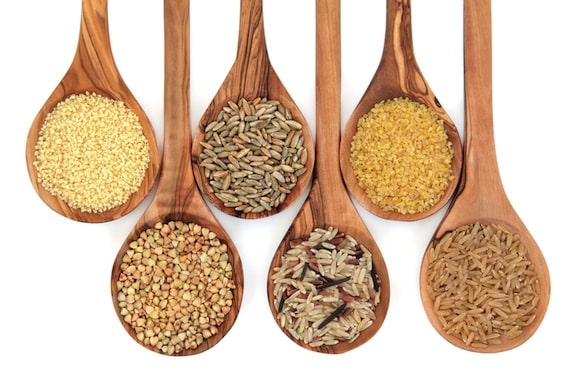
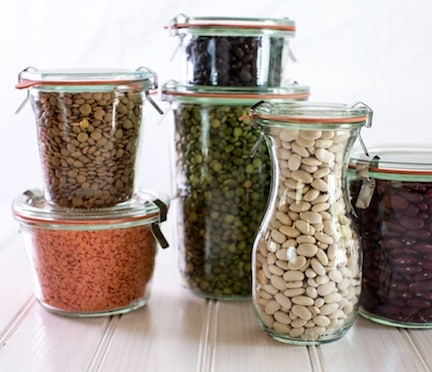
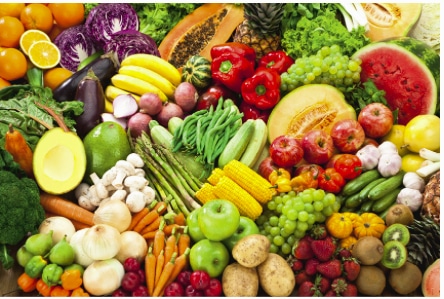
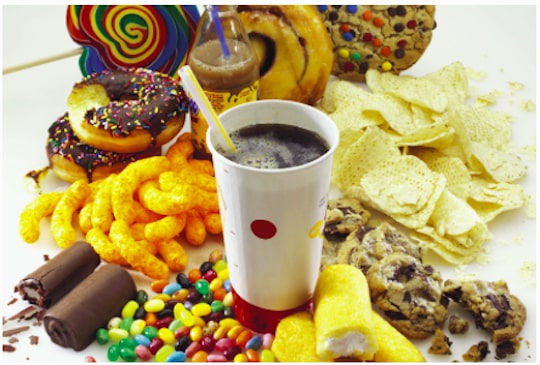
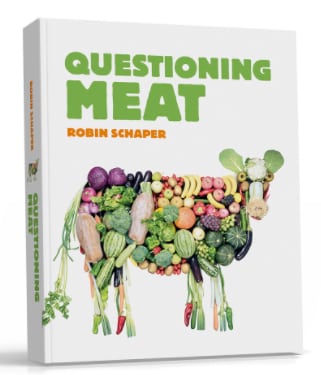

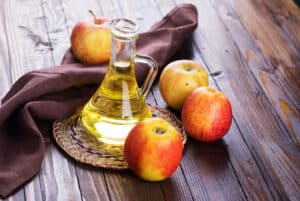
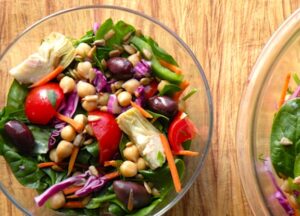
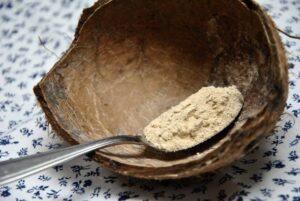
Comments
No Comments